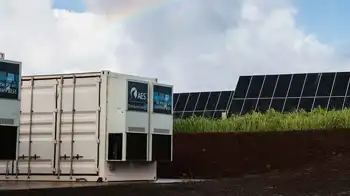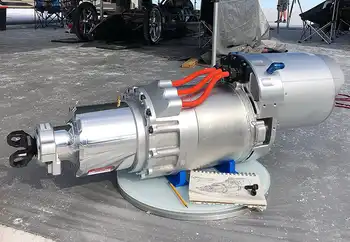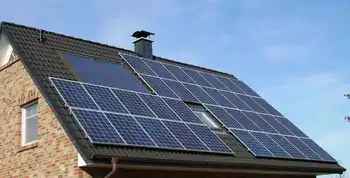BESS: A Clean Energy Solution NY Needs

Substation Relay Protection Training
Our customized live online or in‑person group training can be delivered to your staff at your location.

- Live Online
- 12 hours Instructor-led
- Group Training Available
New York BESS advance renewable energy storage, boosting grid reliability and resilience with utility-scale projects, strict safety oversight, and NYPA leadership to meet 6,000 MW by 2030 and 1,500 MW by 2035 targets.
Key Points
New York BESS are battery storage projects that balance the grid, enable renewables, and meet strict safety rules.
✅ State targets: 6,000 MW by 2030; 1,500 MW by 2035.
✅ NYPA 20-MW project eases congestion, boosts reliability.
✅ FDNY, NYC DOB, and state agencies enforce stringent safety rules.
In the evolving landscape of renewable energy, New York State is making significant advancements through the deployment of Battery Energy Storage Systems (BESS), a trend mirrored by Ontario's plan to rely on battery storage to meet rising demand today. These systems are becoming a crucial component in the shift towards a more sustainable and clean energy future, by providing a solution to one of renewable energy's most significant challenges: storage.
BESS plays a critical role in bridging the gap between energy generation and consumption, and many utilities see benefits in energy storage across their systems today, too. During periods of surplus generation, such as sunny or windy conditions conducive to solar and wind power production, BESS captures and stores excess electricity. This stored energy can then be released back into the grid during times of high demand or when generation is low, ensuring a consistent and reliable energy supply.
Governor Kathy Hochul's administration has been proactive in harnessing this technology. In a landmark move, the state inaugurated its first state-owned, utility-scale BESS facility in Franklin County's Chateaugay, and similar utility procurements, such as SDG&E's Emerald Storage solution, underscore market momentum, signifying a major step towards bolstering New York's BESS infrastructure. This facility, featuring five large enclosures each housing over 19,500 batteries, signifies the beginning of New York's ambitious journey towards expanding its BESS capabilities.
Environmental advocates, including the New York League of Conservation Voters, have lauded these developments, viewing them as essential to meeting New York's climate goals, and they point to community-scale deployments such as a Brooklyn low-income housing microgrid as tangible examples of equitable resilience, too. Currently, New York's BESS capacity stands at approximately 291 megawatts. However, Governor Hochul has set forth bold targets to escalate this capacity to 1,500 megawatts by 2035 and even more ambitiously, to 6,000 megawatts by 2030. Achieving these targets would enable the powering of 1.2 million homes with clean, renewable energy.
"Battery storage is pivotal for the reliability of our electric grid and for the phasing out of pollutive power plants that harm our communities," remarked Pat McClellan, NYLCV’s Policy Director. The implementation of BESS is deemed vital for New York to attain its statutory climate mandates, including achieving 70 percent renewable energy by 2030 and 100 percent clean energy by 2040.
Safety and regulatory oversight are paramount in the proliferation of BESS facilities, especially in densely populated areas like New York City. The state has introduced stringent regulations, overseen by both the NYC Fire Department and the NYC Buildings Department, with state and federal governments also playing a crucial role in ensuring the safe deployment of these technologies, and best practices from jurisdictions focused on enabling storage in Ontario's electricity system can inform ongoing refinements as well.
In a significant announcement last August, Governor Hochul underscored the necessity of state oversight on BESS safety issues. She announced the formation of a new Inter-Agency Fire Safety Working Group tasked with examining energy storage facility fires and safety standards. This group, comprising six state agencies, recently unveiled its findings and recommendations, which will undergo public review.
Governor Hochul emphasized, "The battery energy storage industry is pivotal for communities across New York to transition to a clean energy future, and comprehensive safety standards are critical." The state's proactive stance on adopting these recommendations aims to safeguard New York’s transition to clean energy.
The completion of the Northern New York Energy Storage Project, a 20-MW facility operated by the New York Power Authority, marks a significant milestone in New York's clean energy journey. This project, aimed at alleviating transmission congestion and enhancing grid reliability, serves as a model for integrating clean energy, especially during peak demand periods, as other regions, such as Ontario, are plunging into energy storage to address looming supply crunches.
Located in a region where over 80% of electricity is generated from renewable sources, this project not only supports the state's clean energy grid but also accelerates New York's energy storage and climate objectives. Governor Hochul expressed, “Deploying energy storage technologies enhances our power supply's reliability and resilience, further enabling New York to construct a robust clean energy grid.”
As New York State advances towards its ambitious energy storage and climate goals, the development and deployment of BESS are critical. These systems not only enhance grid reliability and resilience but also support the broader transition to renewable energy sources, including emerging long-duration storage projects that expand flexibility, marking an essential step in New York's commitment to a sustainable and clean energy future.











